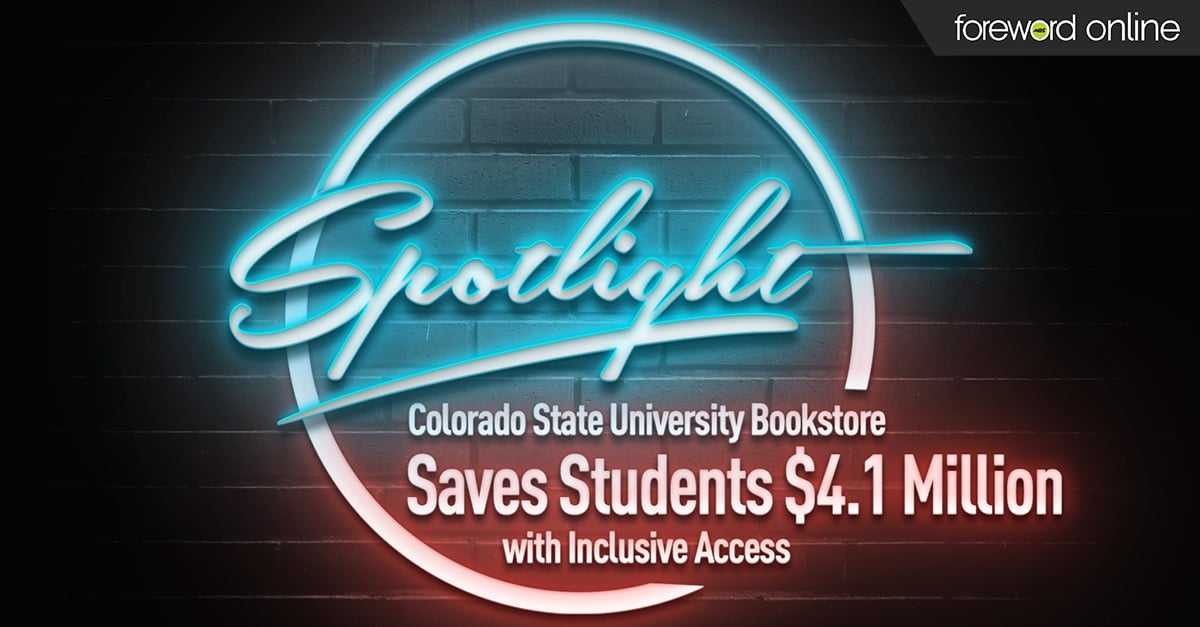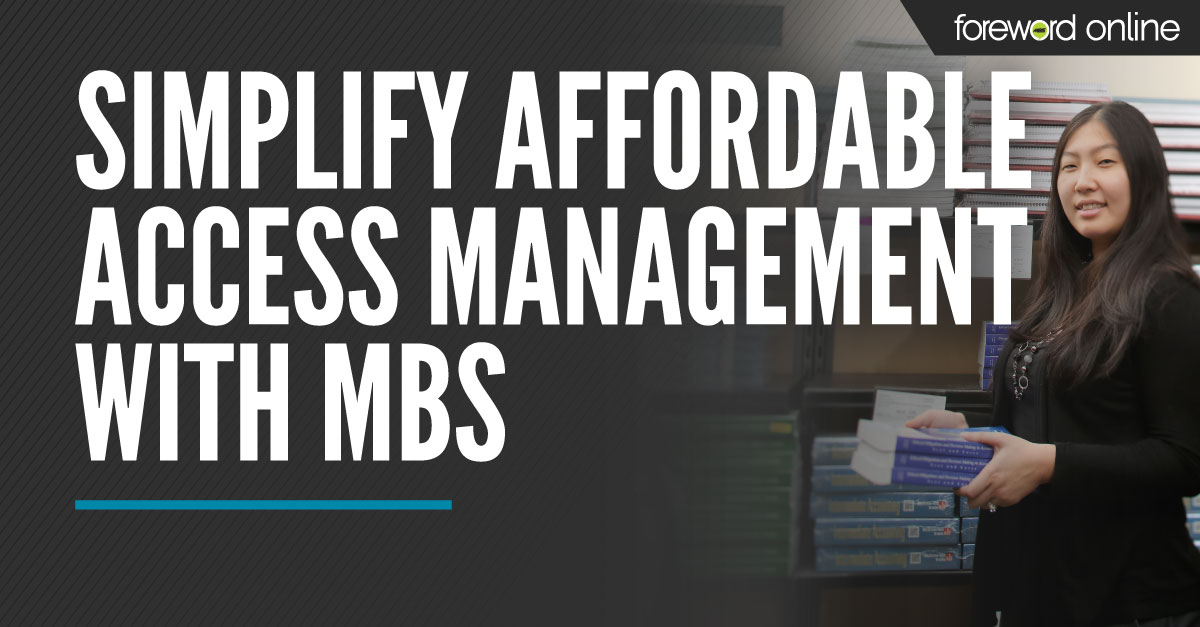The college store industry is changing. From buyback to course material delivery, college stores must evolve to continue meet the needs of campus. We recently sat down with Kurt Kaiser, assistant director of textbooks at Colorado State University Bookstore, to discuss how their store has met new challenges and saved students more than $4.1 million.
 What has changed in collegiate retail?
What has changed in collegiate retail?
Buyback has definitely changed on our campus from what it used to be. A couple years ago, we had lines of cars waiting at our drive-through location. Now that it is mostly rental returns, we don’t have as many people coming to buyback.
One day during buyback, we ended  up getting about a foot of snow and students still came. We actually had to get up and poked the top of tent because there was so much snow. The wind was howling outside, and the buyback sign was getting knocked over all place. We needed a way to keep it up and the students that parked in that lot by our tent had built a huge snowman. Our buyback folks thought outside of the box and used the snowman. It was a big hit with all the students who braved the weather to sell back their books.
up getting about a foot of snow and students still came. We actually had to get up and poked the top of tent because there was so much snow. The wind was howling outside, and the buyback sign was getting knocked over all place. We needed a way to keep it up and the students that parked in that lot by our tent had built a huge snowman. Our buyback folks thought outside of the box and used the snowman. It was a big hit with all the students who braved the weather to sell back their books.
Now, we have fewer buyback locations on campus and have limited the number of days. We have our main store in the northeast corner of campus. We have a trailer due south near the southern part of campus and two locations on the west side in dorms.
We basically looked at how much it costs us to man the trailer and it just wasn’t worth it. It had gotten to the point that it just wasn’t effective. The students don’t have to go out of their way to stop at the drive through for rental returns.
Tell me about your inclusive access program.
Our inclusive access digital online homework platform has been great for the store. Inclusive access has grown almost 300 percent on our campus since 2017. It’s now about 30 percent of our textbook business. For us, it has worked extremely well.
One thing that distinguishes our inclusive access program is that we mainly target the homework platform, not straight eBooks. We’re not taking away from print books sales that much because of that. So, it hasn’t hurt our wholesale. The store can negotiate with publishers to lower the cost for students. It’s a great deal for students and good for the bookstore. I think inclusive is the way of the future for the homework platforms.
What did your store have to do to implement inclusive access on your campus?
My store director sent me to UC Davis to learn how they were doing their inclusive access pilot. When I got back, I presented the idea behind the program and how things would flow in our store to my boss. Once we were all on board, I reached out to McGraw Hill and a specific instructor that had a class that fit into the requirements.
We all sat down to discuss how it would work so everyone was on the same page. After that initial pilot went through, we started recruiting other classes and publishers.
We worked with our Vice President for Information Technology and Dean of Libraries to make sure the student information was being handled properly. He presented it to the Provost as well, so everyone on campus is behind it.
Has there been opposition the program?
There have been a few students who have not liked it, but once they get the whole picture, they are okay with it. To begin with they thought we were charging them for something they didn’t need. Once they understood that they used the online homework and it was less expensive than buying it from the publishers, they liked it.
Also, we can show that for Fall and Spring semesters students saved $4,127,385.25. That has helped even more people embrace the program.
What advice would you give other stores that want to start a similar program?
I have a few pieces of advice.
- Don’t forget all the players on campus that you will deal with. Financial Services will have to field all the calls about what the charge is on their student account — so take them donuts and coffee. If you can, give those folks a heads-up that the charges are going through and let them know what classes are in the program.
- Don’t worry about scaling the program up too soon, it will happen!
- Utilize the systems that are out there to help them manage these programs. Verba and Redshelf are two companies that have the tools to help with all the processes that need to happen. They will think of the small things that you don’t think about. There is no way I could have managed over 400 sections the way I used to do it when I downloaded rosters every few days to email the new students and track the ones that dropped the class and the opted out.
- Talk to your peers. Ask them to outline their program — no need to reinvent the wheel!




